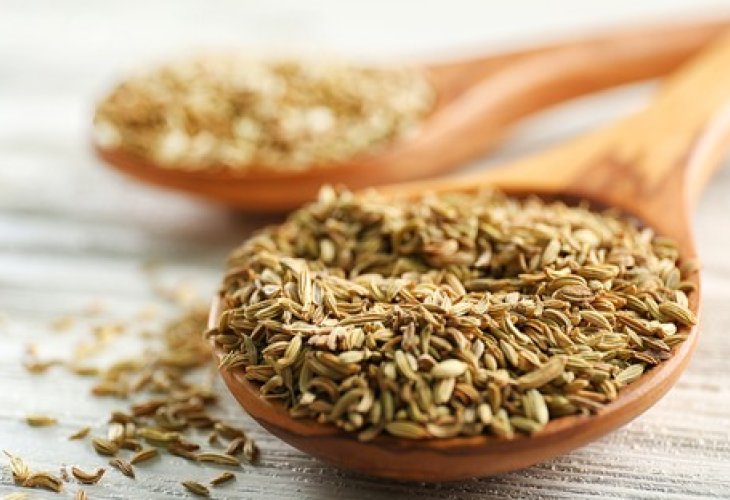New Study on Cumin: What Happens to Your Body If You Consume a Teaspoon of Cumin Daily?
A recent study published in a professional journal was the first to unveil the potential of cumin seeds in the context of dieting. Researchers found that consuming a teaspoon of cumin daily significantly reduces harmful blood fats.
 Cumin (illustration photo: shutterstock)
Cumin (illustration photo: shutterstock)Cumin is the name of an annual spice plant belonging to the Apiaceae family. Cumin is prevalent in countries from the eastern Mediterranean to eastern India.
The spice derived from the cumin plant has a strong and unique flavor, mainly from the essential oil of cumin, cumin aldehyde. When fried or cooked, its taste changes significantly. Cumin as a spice is often used in Middle Eastern dishes, such as Yemeni, Indian, Turkish, Persian, Chinese, as well as Brazilian and Mexican foods. In the country, cumin is commonly found in well-known falafel balls, hummus, and more.
Cumin is mentioned in our sources as early as the Book of Isaiah, where it is noted as a plant that is threshed not by a cart wheel but with a rod. Cumin is mentioned in Isaiah along with the spice nigella, which is often called "black cumin" in various places.
Besides being a common spice, cumin is also known for various medicinal uses. Various home remedies suggest, for example, adding cumin to a glass of warm milk as a remedy against cold. Cumin tea is known to accelerate childbirth and in Persian folk medicine, cumin was also used as a remedy for toothaches. Nowadays, essential oil with antibacterial properties is extracted from cumin and is used for various medicinal purposes.
A recent study published in the professional journal journal Complimentary Therapies in Clinical Practice was the first to unveil the potential of cumin seeds in the context of dieting. Researchers found that consuming a teaspoon of cumin daily significantly reduces harmful blood fats.
In addition to its many unique properties, cumin joins a line of foods that particularly help accelerate the body's metabolism. The study was conducted by scientists from the "Medical Science" University in Iran, by dividing women of various ages suffering from overweight into two main groups. Both groups were fed healthy food containing up to 500 calories per day, but only one of the groups enjoyed the addition of spices.
The food the first group was asked to eat every morning on an empty stomach was yogurt mixed with a teaspoon of cumin. The second group also enjoyed yogurt, but without the addition of cumin. The results were staggering: after just one month, participants in the first group managed to shed 14 kg, while the second group lost about half of that.
Not only that, but also in terms of reducing fat percentage, the first group succeeded much more, losing 14.5% fat compared to 4.5% lost by the second group that did not consume cumin. The scientists attributed this to a substance called filosterol (in English, Filsterole) found in cumin, which allows for quick release of cholesterol from the body.
Disclaimer: The nutritional advice is published based on studies and publications abroad. We do not guarantee the success of what is described, but only bring the information to your attention.
Related Topic:
Innovative Research Determines: Cumin Will End Your Obesity
Recommended: Recipe for chicken breast on a bed of rice and cumin, click here.
Want to know more about cumin? Click here.
Enjoyed the article? Have good recipes with cumin? Tell us about it in the comments.

